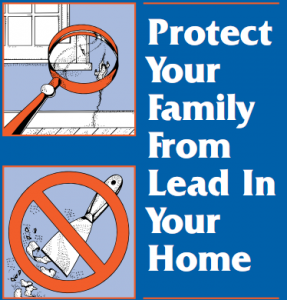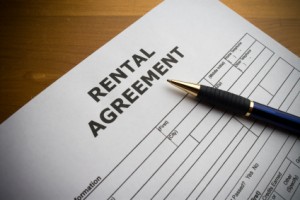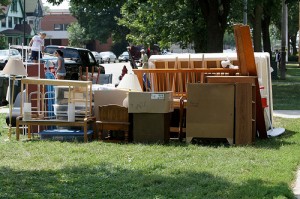Posted by Teresa on August 18, 2011 under Landlord and Tenant FAQs | 
 Q: Can a landlord prevent a tenant from breaking a lease with 60 days’ notice, due to trauma from a violent crime that occurred in the rental unit?
Q: Can a landlord prevent a tenant from breaking a lease with 60 days’ notice, due to trauma from a violent crime that occurred in the rental unit?
A: In some cases, and in some jurisdictions, the law would allow a lease to be broken without penalty. Usually, a tenant who signs a one-year lease cannot terminate it mid-term, even with a 60-day notice. In general, a landlord is not liable for unforeseen criminal acts of a third party against his or her tenants. If the tenant had reported issues regarding safety, such as inoperable door or window locks, or insufficient lighting, the tenant may have recourse, as the landlord could be considered in breach of the lease for failing to protect the tenants.
In a case like this, landlords could find themselves between a rock and a hard place, wanting to avoid any admission of liability by allowing a tenant out of a lease, while understanding why they would want to move.
Q: If I see that a tenant is demonstrating some hoarding tendencies, should I intervene?
A: Landlords have the right to expect a tenant will keep the rental property in good, clean and safe condition. Hoarding can be a safety hazard, particularly if flammable materials are kept in large quantities or emergency crews would have a difficult time navigating through the unit. Tenants who keep debris, garbage, empty boxes and cans, and stacks of newspapers in a rental unit are endangering themselves and other tenants.
Don’t ignore this situation. Keep the lines of communication open and respectfully and gently talk to the tenant about the situation. You may need to try contacting a family member (perhaps from the emergency contact listed on the lease application).
Q: My tenant damaged a wall and hardwood floor by carelessly leaving a window open during a rainstorm. I took the repair money out of their security deposit, and they replenished it. Now I want to terminate the lease to prevent this from happening again. Do I have that right?
A: Carelessness is not gross negligence. If the tenant is on a month-to-month lease, then you may terminate with notice, with no reason given. But if it’s a longer lease, this situation probably will not qualify as an allowable reason.
Legal disclaimer:
The contents of this article are intended for general information purposes only, and should not be relied upon as a substitute for obtaining legal advice applicable to your situation.
Posted by Teresa on August 12, 2011 under Landlord Paperwork and Forms | 
 If you’re a landlord who owns older rentals, you may be at risk for liability if you don’t properly disclose the possibility of lead-based paint. Lead-based paint was commonly used prior to 1978, when it was banned. If it cracks, peels or is scraped or sanded, it can still pose a health hazard, particularly to children who ingest paint chips or breathe the dust. Lead paint still exists in many older homes.
If you’re a landlord who owns older rentals, you may be at risk for liability if you don’t properly disclose the possibility of lead-based paint. Lead-based paint was commonly used prior to 1978, when it was banned. If it cracks, peels or is scraped or sanded, it can still pose a health hazard, particularly to children who ingest paint chips or breathe the dust. Lead paint still exists in many older homes.
The Residential Lead-Based paint Hazard Reduction Act, commonly known as Title X, was enacted in 1992. The Environmental Protection Agency regulates the act for all rental properties built before 1978.
Under Title X, landlords must disclose any known lead-based paint or hazards on the property to tenants before signing or renewing a lease or rental agreement. The tenants and landlord must sign an EPA-approved form to prove the landlord disclosed information about any known lead on the premises. The landlord must also provide tenants a brochure, “Protecting Your Family From Lead in Your Home,” supplied by the EPA or the state. The brochure is available online or you can request printed brochures from the National Lead Information Clearinghouse at 800-424-5323.
Property owners are not required to test for lead or remove it. And, certain properties are exempt from the lead disclosure requirement:
- Lofts, efficiencies and studio apartments
- Short-term vacation rentals of 200 days or less
- Single rooms rented in a residence
- A building certified as lead-free by an accredited lead inspector
- Housing designed for person with disabilities, unless children live there
- Retirement communities, unless children are expected to live there
- Housing built after January 1, 1978
Lead-based paint should not be removed unless proper precautions are taken. Even low levels in the bloodstream pose serious health risks to everyone, but especially children and pregnant women. Landlords should read the EPA brochure to become familiar with the dangers and regulations surrounding lead-based paint.
Posted by Teresa on July 29, 2011 under Landlord Tips | 
 Landlords are often asked to give references on their former tenants to other landlords. And if you’re a landlord, you’ve probably asked for plenty of tenant references of your fellow landlords. It’s an important part of screening tenants before you sign a lease.
Landlords are often asked to give references on their former tenants to other landlords. And if you’re a landlord, you’ve probably asked for plenty of tenant references of your fellow landlords. It’s an important part of screening tenants before you sign a lease.
You may be surprised that a tenant who has paid rent late or caused damage would ask you to provide a reference, but it happens all the time.
Here are a few tips for when you’ve been asked to provide a reference for a tenant you don’t particularly want to recommend to another landlord.
- Some landlords are completely straightforward with their fellow landlords, telling them honestly about all the tenant’s bad and good habits.
- Other landlords offer only answers to specific questions. If a particular topic isn’t brought up, they are not going to the one to do it.
- Still others will only say whether or not they would rent to the tenant again.
- Keep it professional: Keep your personal opinions out of the conversation. Offer only facts, and let the new landlord decide whether or not he or she will rent to your soon-to-be ex-tenant.
- Consider asking tenants to sign a release that authorizes you to share information with a new landlord. Let the tenant know that you will only offer information that can be backed up by documentation.
- In some areas, you might be subject to lawsuits for releasing negative information. If you need to know for sure where to draw the line, consult an attorney before you say anything.
- That said, you can most likely avoid trouble by being honest, providing only facts and no opinions, and knowing you can back up the facts with documentation.
For many landlords, just sticking to the “Would you rent to this person again?” question is the best way to go.
Posted by Teresa on May 11, 2011 under Landlord Tips | 
 Landlords and property managers have to deal with tenant complaints. It’s just a fact of life when you’re in the rental property business. Whether you’re interacting with a tenant who complains frequently or rarely, it’s important to properly track the complaint and your response—you never know when you’ll need the facts of the matter to protect yourself and your assets.
Landlords and property managers have to deal with tenant complaints. It’s just a fact of life when you’re in the rental property business. Whether you’re interacting with a tenant who complains frequently or rarely, it’s important to properly track the complaint and your response—you never know when you’ll need the facts of the matter to protect yourself and your assets.
Establish Good Communication With Every Tenant
Encourage tenants to come to you with complaints, rather than letting them go or complaining to other tenants. You can foster this by demonstrating good listening and communication skills. Get to know your tenants as people, listen for clues about what matters to them, and give them the respect they deserve. When tenants trust you, they will be more likely to approach you with a problem.
Establish a Tenant Complaint Procedure
Creating an official form demonstrates to the tenant that you are taking their complaint seriously. It also allows you to keep a record of the situation. You can record details of how you handled the complaint, what repairs or remedies were performed, and you can even make a note of when to follow up with the tenant to be sure the complaint is resolved to their satisfaction. This becomes especially important in cases where a tenant withholds rent for non-satisfaction of complaints.
Fixing broken windows or door locks, replacing noisy ceiling fans and other mechanical problems can usually be resolved to everyone’s satisfaction. When tenants complain about their neighbor’s bad parking habits or noisy parties, you have a more delicate situation on you hands. If your lease agreement includes a list of “house rules” such as quiet time or established parking areas, then you’re covered. You simply speak to the tenant who is breaking the rule and point out that expectations were clearly established. If the problem continues, written warnings and even eviction are your next steps.
It may be difficult–if not impossible–to keep 100% of your tenants 100% happy. But the goal is to keep good tenants in your properties and to keep everyone as safe and as happy as you can. Resolving issues promptly goes a long way toward that goal.
Posted by Teresa on April 19, 2011 under Rents and Deposits | 
 In a perfect world, every tenant would pay their rent online a day or two in advance, so that the funds are automatically transferred into the landlord’s preferred bank account. In this fantasy world, no rent checks, money orders, mail issues or late payments would ever need to be dealt with. Landlords know this will never happen!
In a perfect world, every tenant would pay their rent online a day or two in advance, so that the funds are automatically transferred into the landlord’s preferred bank account. In this fantasy world, no rent checks, money orders, mail issues or late payments would ever need to be dealt with. Landlords know this will never happen!
In reality, tenants come with a wide assortment of likes, dislikes and financial challenges. Some refuse to keep a checking account (or can’t get a bank to open one). Others are not computer-savvy and will be unable to navigate an online rent payment system. Online payments may be difficult for the the elderly or disabled to deal with. Still other tenants just prefer to deal in cash.
Depending on your rental property and typical tenant, it might be unrealistic to demand that all tenants mail you a check or pay rent online. Making it easier for your tenants to pay their rent on time by offering options that work for everyone might take some effort—but it can pay off. Just make sure that it works for you, as well.
Some options to consider for tenant rent payments:
- Dropping off cash or money orders on-site: this is not a good idea, as it invites theft!
- Set up a rent-receiving bank account and distribute deposit slips to tenants: Indicate each name on the slip, and tenants make deposits directly to the account. The landlord can track deposits online, and usually view and print a copy of the deposit slip.
- Collect rent personally: Many landlords prefer to pick up rent payments themselves because it gives them a chance to check on the property and have some face-to-face tenant time. It can also prevent late payments, since the tenant either has to pay up or explain why they can’t. However, this can be dangerous—especially when cash is involved.
- Provide self-addressed envelopes: Whether you provide the stamps or not is up to you; many tenants find it easy to drop a money order or check in an envelope that is ready to go. It may seem like going too far to make things easier for the tenant, but if it helps your cash flow—why not?
- Direct deposit or electronic transfer: In this situation, the tenant agrees to automatic electronic transfer from their bank account to yours on a specific day of the month. Automatic bill pay is becoming the way people pay bills, so why not rent as well?
Creative rent payment solutions can help keep your tenants paying on time–and keep you in the black!
Posted by Teresa on March 22, 2011 under Landlord Paperwork and Forms | 
 Harry the landlord notices a broken window in Unit A during a routine maintenance visit to Unit B. He knocks on Unit A’s door to arrange a repair and is greeted by someone he’s never seen, much less approved to live there. The man asks Harry what he wants; Harry explains that he is the building owner. “Oh. I’m visiting,” the man replies.
Harry the landlord notices a broken window in Unit A during a routine maintenance visit to Unit B. He knocks on Unit A’s door to arrange a repair and is greeted by someone he’s never seen, much less approved to live there. The man asks Harry what he wants; Harry explains that he is the building owner. “Oh. I’m visiting,” the man replies.
Later, Harry asks the tenant in Unit B if she has seen the man in Unit A. “You mean Scott?” she answers. “He’s been there for a couple of months.”
There is a fine line between a visitor and an unauthorized resident. Explaining the difference to your tenants can be tough—but it’s something a landlord must do to avoid the risk and potential problems that come when unscreened and unauthorized tenants live in your rental property.
Luckily, making sure you’re legally covered is easy. Just make sure your lease specifies what tenants can and cannot do when it comes to guests.
Harry’s lease does prohibit unauthorized residents. When he brings this to Unit A’s attentions, the tenant replies that her friend is not a resident—he’s just visiting.
Harry reviewed his rental agreement and realized it didn’t specify any time limit for guests or visitors. He revised it to read:
“Persons other than those specifically listed on the Rental Agreement shall be strictly prohibited from staying in the rental unit for more than 7 consecutive days, or a total of 20 days in any 12-month period. Tenant shall notify Owner in writing any time the Tenant expects any guest will be staying in excess of the time limits herein. Additional residents will be subject to full screening procedures, additional rent and security deposit. Unauthorized residents are a violation of this Rental Agreement and grounds for termination of the Rental Agreement.”
Harry was still within his rights to notify the tenant in Unit A that her unauthorized guest had overstayed his welcome and that he would need to move or she would be in violation of her lease. Luckily, she didn’t push the issue and the visitor was soon gone.
Don’t expose your tenants or your business to the risks of unscreened residents. Require your tenants to clear it with you before allowing anyone to move in. Require the new roommate to fill out a lease application and undergo tenant screening and a background check before they unpack their first box of belongings!
Posted by Teresa on January 29, 2011 under Landlord Tips | 
 Landlords are generally responsible by law to provide sufficient heating for tenants—so what happens when the utility company is getting ready to shut off the heat in one of your units? Most leases cover who’s responsible for utilities; some pay their tenants’ landlords utilities, while others require tenants to set up their own accounts with utility providers.
Landlords are generally responsible by law to provide sufficient heating for tenants—so what happens when the utility company is getting ready to shut off the heat in one of your units? Most leases cover who’s responsible for utilities; some pay their tenants’ landlords utilities, while others require tenants to set up their own accounts with utility providers.
Most landlords are concerned for their tenants’ well-being, but of must also think of potential property damage that can be caused when a unit goes without heat in the middle of winter, like freezing and bursting pipes, and water damage.
Here are a few general answers to the question, “What can I do if my tenant’s heat is cut off?”
When in doubt about legal questions, check with your legal advisor. This blog is not intended to be a source of legal advice.
1. Landlords are not responsible for a tenant’s legal or financial obligations. If they are required by the lease to keep heat on in the unit, and they fail to pay the bill until the utility is forced to terminate service, they are responsible.
2. Your tenant is also responsible for subsequent damage to your property as a result of their negligence. While it may seem like adding insult to injury, it’s simply the consequence of the tenant breaking a legal agreement.
3. Prevention is the key. You do not want to find out about a tenant with utility issues from the downstairs tenant, who calls to report water dripping through the ceiling. Make arrangements with the utility company that any service shut-off notifications are sent to you.
4. Take another look at your lease agreement. Be sure that it states that heat is required in the unit to protect pipes, etc. from damage, and that failure to heat the unit is cause for eviction.
Don’t allow a simple lack of preparation to cause unnecessary damage to your rental property. Make sure you know what’s going on with your tenants and set up notifications with the utility companies that service your properties.
Posted by Teresa on January 14, 2011 under Landlord Paperwork and Forms, Landlord Tips | 
 If you’re a landlord who is selling your rental property, here are some guidelines for notifying your tenants. Laws and regulations vary according the city and state where you live, so check yours for specifics.
If you’re a landlord who is selling your rental property, here are some guidelines for notifying your tenants. Laws and regulations vary according the city and state where you live, so check yours for specifics.
- Double-check your lease, which may or may not address the sale of the property. Many large apartment building change hands without the tenants knowing, but for single family residences, small buildings and duplexes, it’s more difficult to show and sell a property without tenants knowing something is going on.
- If a tenant asks what’s up, be honest. Reassure them that the new owner will welcome them as tenants. Do what you can to avoid losing any tenants before the sale is final.
- It’s not generally required that you notify tenants that the building is going on the market. However, if you need entry to a unit to show a potential buyer, follow the standard notification period you use before entering a tenant’s unit.
- Remember that happy tenants are a big selling point. Try to avoid numerous interruptions and make an attempt to accommodate the tenant’s schedule.
- Most questions you receive will be regarding security deposits. Let tenants know if you and the buyer decide to:
a. refund all security deposits so new owner can collect them anew;
b. transfer existing security deposits to the new owner.
- When the sale is completed, send a notification to each tenant with the effective date that you will no longer own the building or accept rent payments. Ideally, this would arrive at the same time as a letter from the new owner, directing tenants where and to whom to send rent payments.
- State laws vary, but in general, once the sale is completed, the new owner is obligated to honor all existing leases. Whether they do or not—or whether tenants wish to continue with the lease or not—is no longer your problem.
Posted by Teresa on December 14, 2010 under Landlord Paperwork and Forms, Landlord Tips | 
 Many tenants notify landlords of their plans to move at the end of a lease by mentioning it in passing. Others assume that, if they haven’t signed a new lease, the landlord knows they are moving and they don’t need to notify.
Many tenants notify landlords of their plans to move at the end of a lease by mentioning it in passing. Others assume that, if they haven’t signed a new lease, the landlord knows they are moving and they don’t need to notify.
It’s a good idea to require tenants to provide a written notice of their intent to move. Many states require it, and if you use a well-written lease, it probably does as well.
The Advantages of Written Notices
Requiring tenants to put their intentions in writing is a good idea for several reasons:
- It eliminates the mix-up that can occur with verbal notifications
- It keeps the landlord/tenant relationship more businesslike
- It may be state law
- Written notices leave nothing to the imagination
- You won’t forget the tenant’s move-out date, which can lead to problems
- You’ll have time to prepare the security deposit return or deductions
What to Include on a Tenant’s Notice of Intent to Vacate Unit
Use a simple form, either one you obtain online or one you create yourself. You can provide it to tenants at lease signing, although it’s not likely they’ll keep it around long enough to turn it in at the end of the lease. Many landlords provide a form to tenants 60 or 90 days before the lease is up, with instructions to return it within 30 days of the end of the lease, if they plan to move.
The form should include:
- The date the form was completed;
- The name of the landlord or property management company;
- The address of the rental unit;
- Legal language including: The undersigned Tenant (name) hereby gives written notice of intent to vacate the rental unit at (address) on (date);
- A statement that the tenant understands they are responsible for rent until the end of the current lease or the day they vacate the unit, whichever is later;
- A statement that in accordance with the lease, the landlord is allowed reasonable access with advance notice to show the rental unit to prospective renters or contractors;
- A line for the tenant to sign and date the form.
As you can see, a thorough tenant move-out form covers all the bases: the date of the move-out, the day the rent is to be paid through, and permission to show the unit or allow access to workers.
Landlords who want even more information can include a short survey on the form, asking why the tenant is moving and if there is anything that could have been done to keep him or her as a tenant. This type of feedback is extremely valuable!
Pre-screen all tenants as part of your standard application process. Background and credit checks will help ensure you rent to qualified tenants. For more landlord resources, including forms and information on tenant screening, turn to E-Renter.com.
Posted by Teresa on December 3, 2010 under Landlord Paperwork and Forms, Landlord Tips | 
 Have a tenant moving out? Wouldn’t you love for him or her to leave your rental unit in a state that will make you smile? Why not just tell them exactly what you want? Sometimes tenants need to know your expectations. While there are no guarantees they will fulfill them, providing them with a tenant move-out checklist can make that more of a possibility.
Have a tenant moving out? Wouldn’t you love for him or her to leave your rental unit in a state that will make you smile? Why not just tell them exactly what you want? Sometimes tenants need to know your expectations. While there are no guarantees they will fulfill them, providing them with a tenant move-out checklist can make that more of a possibility.
And since most tenants want their entire security deposit returned, following a list can help them achieve that goal. A little education and open communication can go a long way toward a win-win situation for both landlord and tenant. Here are some items you might want to include on your list.
Move-Out Check List for Tenants
- All trash removed from premises, including patio and storage unit
- Closets emptied and vacuumed or mopped
- Bathroom clean, including tub, sink, toilet, vanity drawers, shelves, floor and baseboards
- Kitchen clean, including inside of cabinets and drawers, counters, sink, baseboards and floor
- Disposal in working order
- Refrigerator empty and clean, including shelves, drawers and door (do not turn off)
- Freezer empty and clean
- Dishwasher empty and clean
- Stove top and oven clean, including range hood
- Broiler pan clean
- Nails removed from walls
- Any spilled paint cleaned up
- Locks on windows and doors in working order
- All window blinds clean, in place and in working order
- Carpets vacuumed
- Linoleum and tile floors cleaned and mopped
- All ceiling fixtures, with light bulbs
- Windows clean
- Ceiling fans clean
- No carpet stains
- No scuffs on walls and floors
Starting with a list will help ensure that tenants are meeting your expectations—and help them get their security deposit back.
 Q: Can a landlord prevent a tenant from breaking a lease with 60 days’ notice, due to trauma from a violent crime that occurred in the rental unit?
Q: Can a landlord prevent a tenant from breaking a lease with 60 days’ notice, due to trauma from a violent crime that occurred in the rental unit?








